“Granada annulled the 2020 trilateral declaration”. Opinion from Yerevan - 12:44 PM 10/6/2023
“Granada annulled the 2020 trilateral declaration”. Opinion from Yerevan
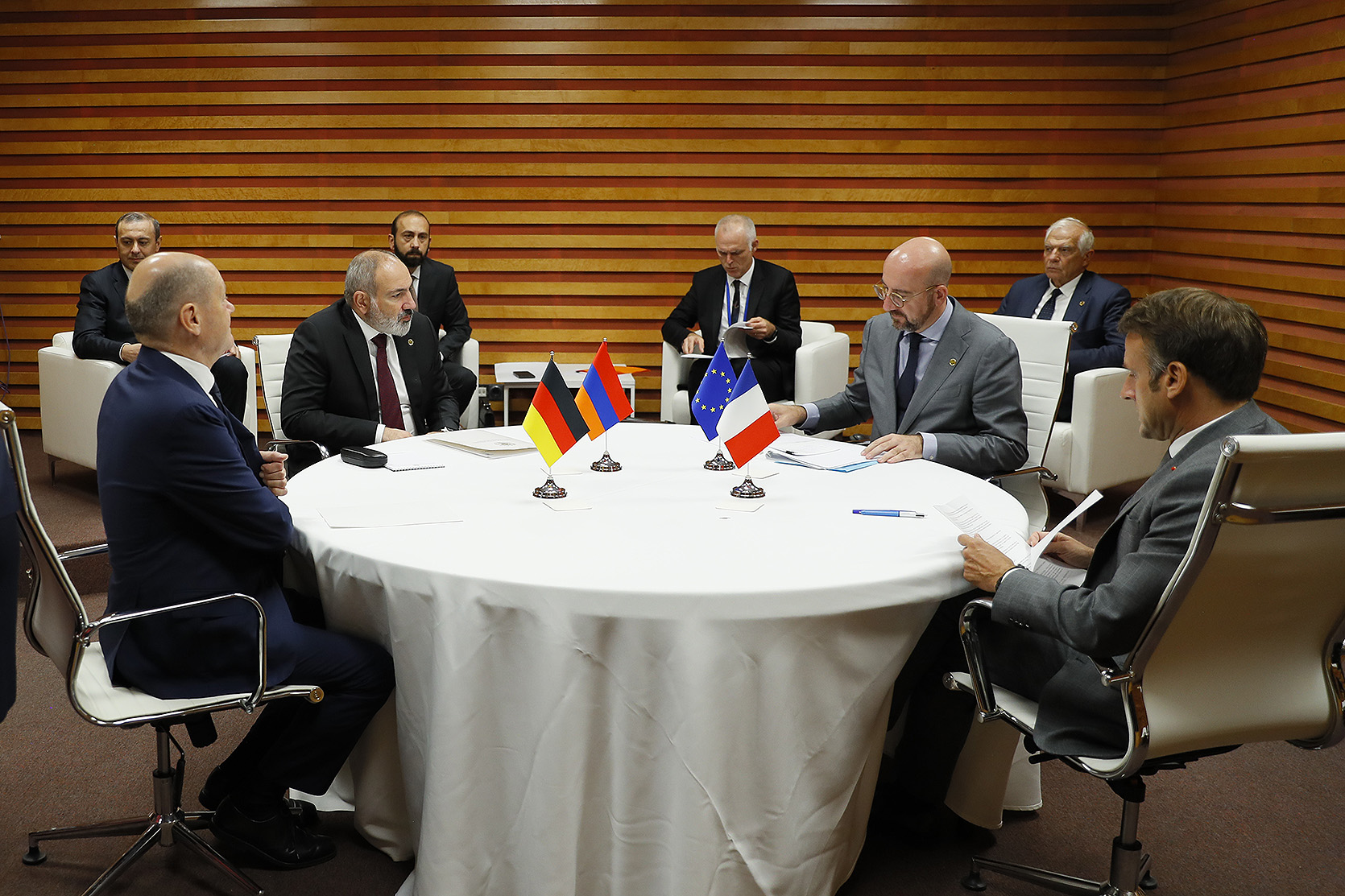
Outcome of the quadripartite meeting in Granada
“The statement adopted at the end of the quadripartite meeting held in Granada annulled the November 9, 2020 trilateral document signed by the leaders of Armenia, Azerbaijan and Russia at the end of hostilities in Karabakh,” political analyst Gurgen Simonyan believes.
He explains that the text of the Granada statement “recognizes the legitimacy of the countries’ services and laws in relation to their sovereign territories, while the November document implied the presence of Russian special services – Russia’s FSB – on them.”
The day before, Armenian Prime Minister Nikol Pashinyan, French President Emmanuel Macron, German Chancellor Olaf Scholz and European Council President Charles Michel held a quadrilateral meeting in Granada, within the framework of the third summit of the European Political Community.
Azerbaijani President Ilham Aliyev refused to participate in the meeting, citing France’s biased position. In addition, he proposed to invite the Turkish president, which was opposed by Paris and Berlin.
Main provisions of the statement adopted in Granada, as well as a commentary by an Armenian political scientist.
Provisions of the statement adopted in Granada
European Council President Charles Michel, French President Emmanuel Macron and German Chancellor Olaf Scholz
- emphasized their unwavering support for the independence, sovereignty, territorial integrity and inviolability of Armenia’s borders,
- expressed their support for the strengthening of EU-Armenia relations in all dimensions, based on the needs of the Republic of Armenia,
- agreed on the need to provide additional humanitarian assistance to Armenia, as the latter is facing the consequences of the recent mass resettlement of the Armenians of Nagorno-Karabakh,
- emphasized that these refugees should be able to freely exercise their right to return to their homes and places of residence unconditionally, under international supervision and with due respect for their history, culture and human rights,
- expressed their commitment to all efforts aimed at the normalization of relations between Armenia and Azerbaijan on the basis of mutual recognition of the sovereignty, inviolability of borders and territorial integrity of Armenia (29,800 km2) and Azerbaijan (86,600 km2),
- called for strict observance of the principle of non-use of force and threat of use of force,
- emphasized the urgent need to work on the delimitation of the border on the basis of the USSR General Staff maps provided to the sides, which should also be the basis for the withdrawal of forces, the finalization of the peace treaty and the resolution of all humanitarian issues,
- called for the opening of all borders, including the border between Armenia and Turkey, as well as the opening of regional communications on the basis of full respect for the sovereignty and jurisdiction of the countries, as well as on the basis of the principle of equality and reciprocity,
- called for the release of all detainees and for cooperation to resolve the fate of the missing and to facilitate demining efforts.
Commentary
Political analyst Gurgen Simonyan believes Armenia could not have “favorable positions” in the negotiations after its defeat in the 44-day war in 2020.
“It can only count on relatively convenient realities, but Azerbaijan demands much more. Armenia is trying to secure for itself the territories of the Armenian SSR that were under its control during the Soviet Union. But Azerbaijan disputes this too,” he said, commenting on the issue of border demarcation and the map on which it should be carried out.
The political analyst believes that the participation of the Armenian delegation in the meeting in Granada, as opposed to the boycott by Azerbaijan, shows that Armenia has a more constructive position and is ready to promote the peace agenda.
According to Gurgen Simonyan’s assessment, it can be stated that Azerbaijan has always set itself the goal of not only achieving the desired solution to the Nagorno-Karabakh issue, but has also pursued and is pursuing “a policy of complete disintegration, destruction of Armenia’s sovereignty. And this makes all the adopted agreements “untenable and impossible”.
“We need to realize that for peace two sides are needed, and for war one is enough. If they boycott this agenda, the situation will become even more aggravated.”
Referring to the provisions of the statement on Nagorno-Karabakh, the political analyst noted that it uses the terms “mass resettlement” and “refugees.”
“This means that they were deprived of their homeland, subjected to patriocide, which is a phenomenon containing elements of genocide. In the future, Azerbaijan may be accused of committing genocide, and the Kosovo version may work here”.
According to Simonyan, in the current situation the return of NK Armenians to their homeland, to their homes seems unrealistic, but it may eventually become possible.
“If it is possible to send a peacekeeping mission to Artsakh under the auspices of the UN, if the Berdzor corridor [Lachin corridor] operates unhindered, if the border zones are demilitarized, it is not excluded that they will return,” he explained.
When asked by JAMnews what we can expect from the “strengthening of EU-Armenia relations” and “preparation of a joint EU-US event” announced by European Commission head Ursula von der Leyen after her meeting with Pashinyan, the political analyst said:
“We can expect a strategic reversal [of Armenia’s foreign policy vector]. We should realize that Armenia has no alternative. It is necessary to break military-political and economic ties with all hostile parties and try to structure new realities based on our national security.”
According to him, by ratifying the Rome Statute, Armenia showed itself as befits a sovereign state, acting in its national interests. And it was “a much more serious step than leaving Russia’s CSTO military bloc.”
“We are talking about a political and legal U-turn. Now the withdrawal from the Russian CSTO and EAEU blocs are just a consequential, subsequent important step to be taken,” he said.
On October 5, the Armenian Prime Minister also met with the President of the European Commission Ursula von der Leyen in Granada. Following the meeting, a joint statement was adopted, which also states that “in the long term, the European Union and Armenia are determined to strengthen their economic ties”. Ursula von der Leyen informed Nikol Pashinyan about “the preparation of a joint EU-US event in support of Armenia”.
Follow us – Twitter | Facebook | Instagram
Outcome of the quadripartite meeting in Granada


 image/jpeg xaghaghutyan-nobelyan-mrcanaky-n276935-1.jpg
image/jpeg xaghaghutyan-nobelyan-mrcanaky-n276935-1.jpg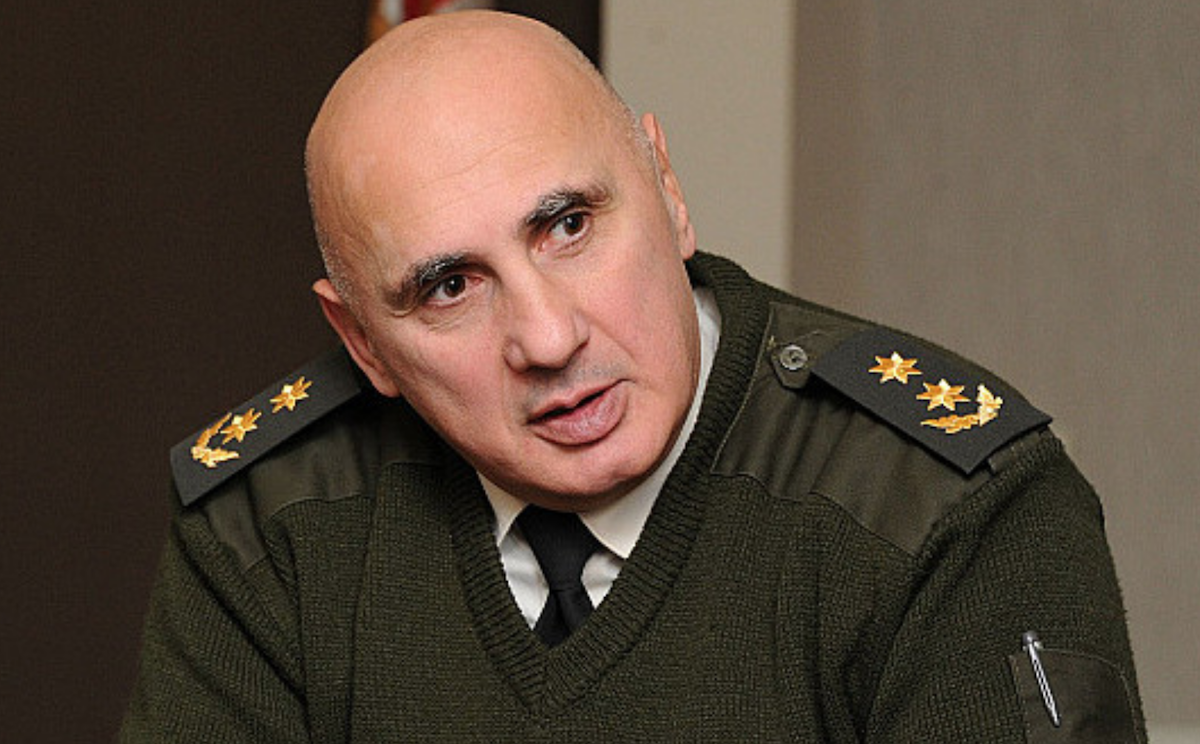
Opinion of Vakhtang Kapanadze
Major General Vakhtang Kapanadze, advisor of the Geocase analytical center, claims that the Russian naval base in Ochamchira may become a legitimate target for Ukraine. He told about it in the program “Round Table”.
Vakhtang Kapanadze: “Ochamchira is about 35 kilometers from Anaklia. This will multiply fire capabilities of the Russian occupation troops deployed in Abkhazia.
The base in Ochamchira is an absolutely legitimate target. We can consider a similar situation – Transnistria. There is also a Russian base there, but until Ukraine is struck from this base, Ukraine will not strike at it. After the base is “activated” it will definitely strike back. And a similar situation will probably develop with the base in Ochamchire.
In my opinion, it is not necessary to shoot from Ochamchira, a ship can go to the sea and from there launch a missile towards Ukraine. In this case, any ship that will strike towards Ukraine, or will participate in hostilities, or will be stationed in the Ochamchira region – is a legitimate target for the armed forces of Ukraine.
The deployment of the base is a show of force by Russia against the backdrop of escalating discussions about the construction of the port of Anaklia in Georgia.
Nothing prevented Russia from bringing ships to, say, Abkhazia. But there is a political factor and a military factor here”.
- “Statement about new Russian base in Ochamchire is alarming” – Georgian Foreign Ministry
- Russian naval base in Abkhazia: “This is a guarantor of security, and the decision was not made today”
- “Why Abkhazia does not face the fate of Nagorno-Karabakh?” Opinion
According to Aslan Bzhania, a permanent Russian naval base will be established in Ochamchire. Bzhania said in an interview with the Russian media outlet Izvestia.
“On the day of our holiday [in honor of the 30th anniversary of the Day of Victory in the Georgian-Abkhazian war of 1992-1993 and Abkhazia’s independence day, which was celebrated on September 30] a small missile ship came to us, we went aboard – a very modern vessel with serious combat capabilities. We signed an agreement, and in the near future there will be a permanent stationing point for the Russian Navy in the Ochamchire district.
All this is aimed at increasing the level of defense capability of both Russia and Abkhazia, and serves the interests of Russia and Abkhazia, and security in this regard is the most important factor.”
Secretary of the Security Council of the Republic of Abkhazia Sergei Shamba reacted to the statement of Aslan Bzhania and noted that this agreement “was not reached today” and the decision was made at previous joint meetings.
According to Shamba, for Abkhazia this is an example of realization of union agreements with the Russian Federation.
The Ministry of Foreign Affairs of Georgia expresses “concern” about this and notes that such an action is a violation of Georgia’s sovereignty and territorial integrity.
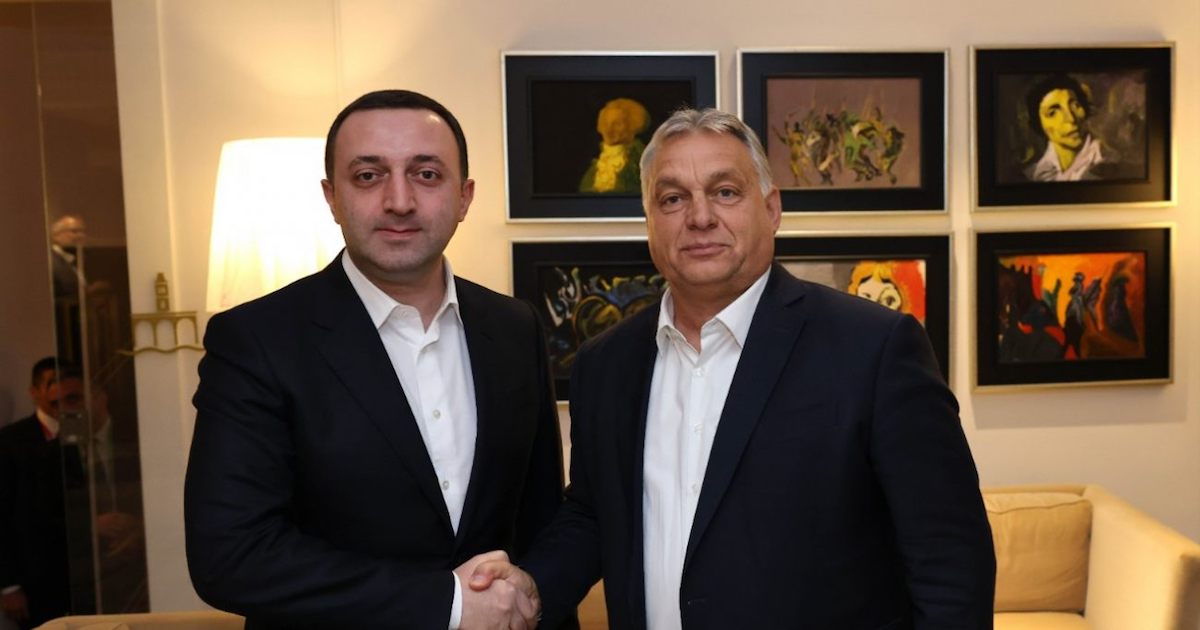
Viktor Orban will come to Georgia
Hungarian Prime Minister Viktor Orban told reporters that he will visit Georgia next week with a government delegation. Before the meeting of EU leaders in Granada, Orban said that he is the most devoted supporter of Georgia’s European integration. According to the Hungarian prime minister, he will come to Georgia to show his support for it.
“It is totally unfair that you are not promised that you will become [an EU member], because you have done a good job. We need you very much,” Orban said.
Asked by a journalist why Georgia was denied candidate status last year, Orban said it was because of the “selfishness” of EU leaders:
“The leaders are selfish. They don’t want to let you in and give you the financial resources you need… which is totally unfair to your country, so we have to share what we have because we need you, you have a strategic position.
I will be in Tbilisi next week. There will be a meeting of the intergovernmental commission in Tbilisi. The Hungarian government will be in Georgia. All ministers will be with me in Tbilisi.”
The informal meeting of EU leaders in Granada will discuss EU enlargement, migration issues and the strategic agenda for 2024-2029.
- “Georgian authorities are trying to prevent the country from obtaining EU candidate status”
- British MP: Georgian Dream is a pro-Putin and pro-Russian party
As a reminder, in May this year, Georgian Prime Minister Irakli Garibashvili spoke at the annual Conservative Political Action Conference in Budapest, also called the “Anti-LGBT Forum”, where he said that the Hungarian people were very lucky to have “such a wise and far-sighted” leader. “Forces opposing the truth are trying to achieve their goals through LGBT propaganda”.
According to Garibashvili, the vast majority of Georgian society shares traditional conservative family values, and these values are not just a legacy of the past. According to Garibashvili, they are the living present – the environment in which “we grew up and want to bring up our children.”
Garibashvili’s speech in Hungary was condemned by the European Socialists party, of which Georgia’s ruling Georgian Dream party was a member. The European Socialists later expelled it from its ranks.
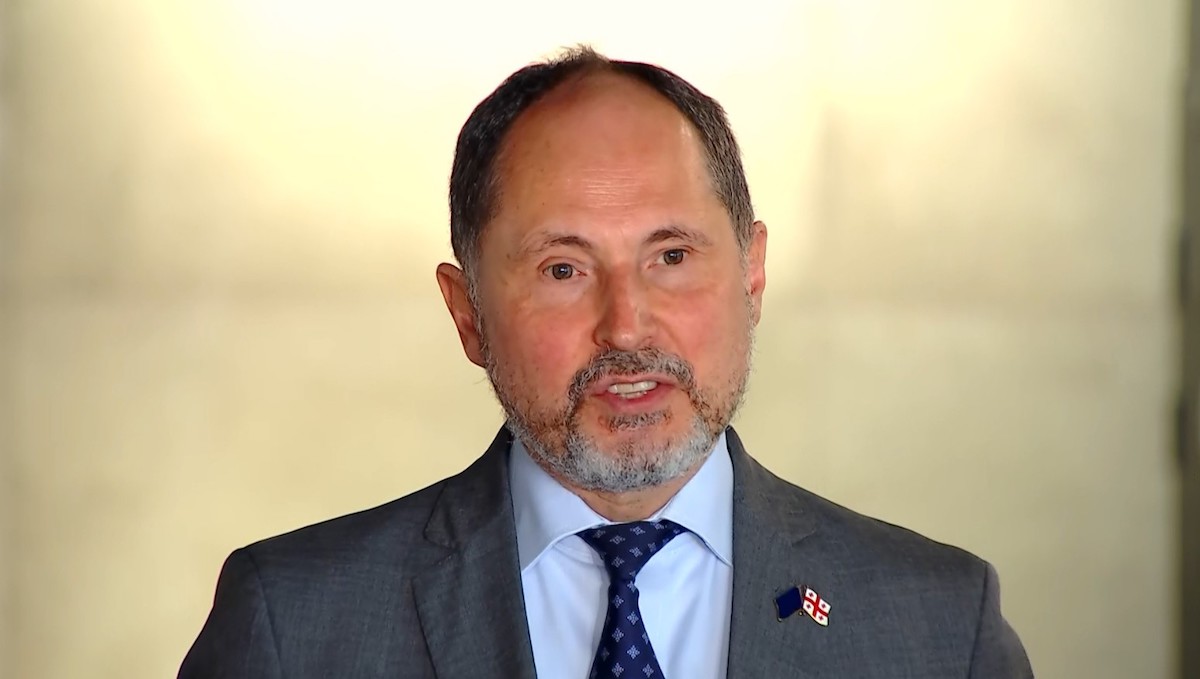
Commentary by Pavel Gerchinsky
According to EU Ambassador to Georgia Pavel Gerchinski, reports about the opening of a Russian naval base in the occupied Abkhazia, in the city of Ochamchira, are extremely worrying. Regarding the so-called law on tents, Herczynski explained that the EU supports freedom of expression and assembly. The ambassador also spoke out about the impeachment of the Georgian president, saying that the process is “not conducive” to depolarization.
What the EU ambassador said to journalists
On the Russian base in Abkhazia
“Let me reiterate the EU position: we support Georgia’s independence, sovereignty and territorial integrity. The news about the opening of another Russian military base in the occupied region of Abkhazia is, of course, extremely alarming. This will be a clear violation of Russia’s obligations under the six-point plan of 2008, this is clearly a very undesirable and disturbing development”.
According to the de facto president of Abkhazia Aslan Bzhania, a permanent Russian naval base will be established in Ochamchira. Bzhania said this in an interview with the Russian publication “Izvestia.”
Secretary of the Security Council of Abkhazia Sergei Shamba reacted to the statement of Aslan Bzhania and noted that this agreement “was not reached today” and the decision was taken at previous joint meetings. According to Shamba, this is an example for Abkhazia of the implementation of union agreements with the Russian Federation.
On the so-called tent law
“What I can say is that the European Union condemns violence, regardless of who it is directed against. We condemn any kind of violence, but on the other hand, we very clearly support freedom of expression and assembly.”
On October 5, the parliament adopted amendments to the law on assemblies and rallies in the third reading.
According to the draft law, participants in rallies or demonstrations are prohibited from putting up a temporary structure “if it poses a threat to the participants of the rally or demonstration or other persons, hinders the police in protecting public order and security, causes disruption of the normal functioning of an enterprise, institution or organization, or hinders the holding of the rally and demonstration”.
On the impeachment of the President of Georgia
“The process of impeachment of the President of Georgia does not contribute to depolarization – point number one in the list of 12 recommendations of the European Union, that is why there is an ambiguous picture.
On the one hand, a lot has been done, especially in recent weeks, after the visit of the EU High Representative, we see a huge acceleration, on the other hand, there are still different signals coming from Georgia.”
The Constitutional Court of Georgia has finalized the hearings of the parties on the impeachment of Georgian President Salome Zurabishvili, which were held for three days. The opinion of the CC should be published in due time within the next two weeks.
If the CC recognizes the violation of the constitution by Salome Zurabishvili, the process will already fall within the competence of the Parliament. To declare the impeachment of the president, the president needs the votes of 100 MPs – at this stage the ruling Georgian Dream party does not have the necessary support.
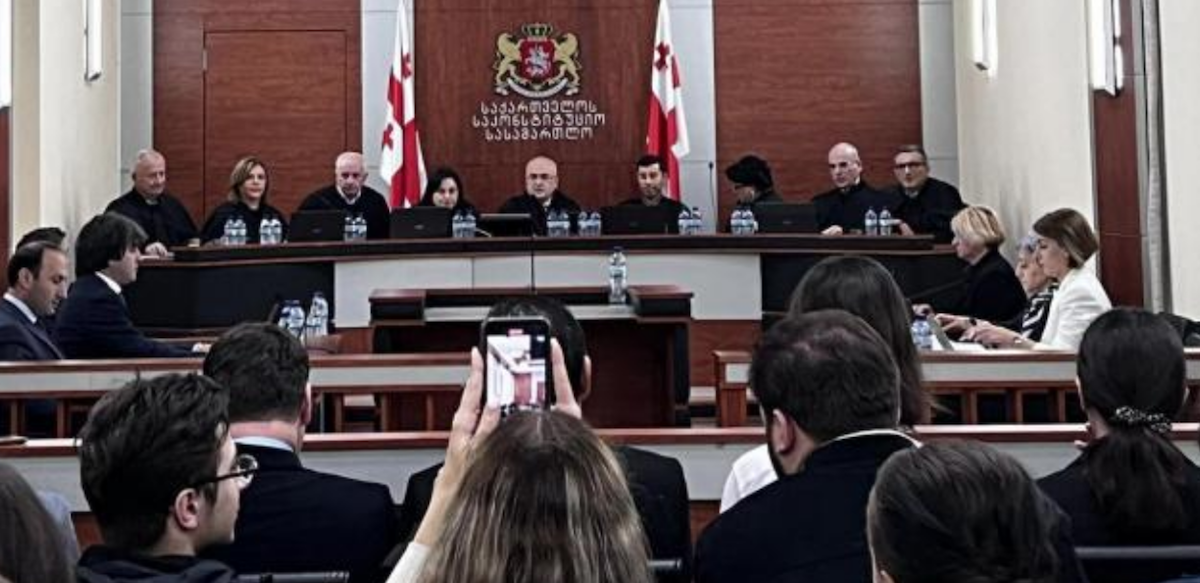
Court hearings on impeachment of president
The Constitutional Court of Georgia has finalized hearings on the impeachment of the President of Georgia Salome Zurabishvili, which were held for three days. The opinion of the court should be published within the next two weeks.
If the court recognizes the alleged violation of the constitution by Salome Zurabishvili, the process will already fall within the competence of the Parliament. The ruling Georgian Dream party does not have the necessary support at this stage.
Zurabishvili herself was not present at the sessions. Her interests were represented in court by former Vice Speaker of the Parliament Tamar Chugoshvili and former Constitutional Court Judge Maia Kopaleishvili.
The plaintiff’s side was represented by the chairman of the ruling Georgian Dream party Irakli Kobakhidze, head of the parliamentary committee on legal issues Henri Ohanashvili, and MPs Giorgi Kakhiani and Tengiz Sharmanashvili.
“It depends on your decision whether the constitution of Georgia will be preserved. At this stage, the question arises depending on your decision – will Georgia remain a parliamentary republic or will it turn into an undefined hybrid system?”, Irakli Kobakhidze addressed the judges in his closing speech.
“They [the current authorities] don’t even care whether the constitution was really violated or not, their concern is purely political, they are angry and dissatisfied with the president of Georgia and want to remove her from office. I really hope that the Constitutional Court will not interfere in the political process,” Maya Kopaleishvili said.
Georgian Prime Minister Irakli Garibashvili said that President Salome Zurabishvili was “let in everywhere” but then she lost confidence. According to his own explanation, he told European leaders about the impeachment and “they understood it”, but said that what was happening looked extremely “ugly”.
- Will the Georgian authorities be able to declare impeachment of the president, and why did they go for it?
- I’m not going anywhere, you should stop dreaming about my resignation’ – Georgian president
On September 1, 2023, it became known that the ruling Georgian Dream party had started impeachment proceedings against the president. It was alleged that the president had grossly violated the constitution when she made several visits to foreign countries without the consent of the government.
We are talking about three working meetings: August 31 with the President of the Federal Republic of Germany, September 1 with the President of the European Council and September 6 with the President of France.
Zurabishvili stated that she makes foreign visits on her own funds and lobbies abroad to obtain for Georgia the status of candidate for EU membership.
Constitutional Court Chairman Merab Turava told reporters that the president’s representatives will not be able to elaborate on the president’s visits and would only answer legal questions.
Inside the opposition, they do not rule out that the Georgian Dream will manage to recruit some opposition representatives and gain the 100 votes needed for impeachment.
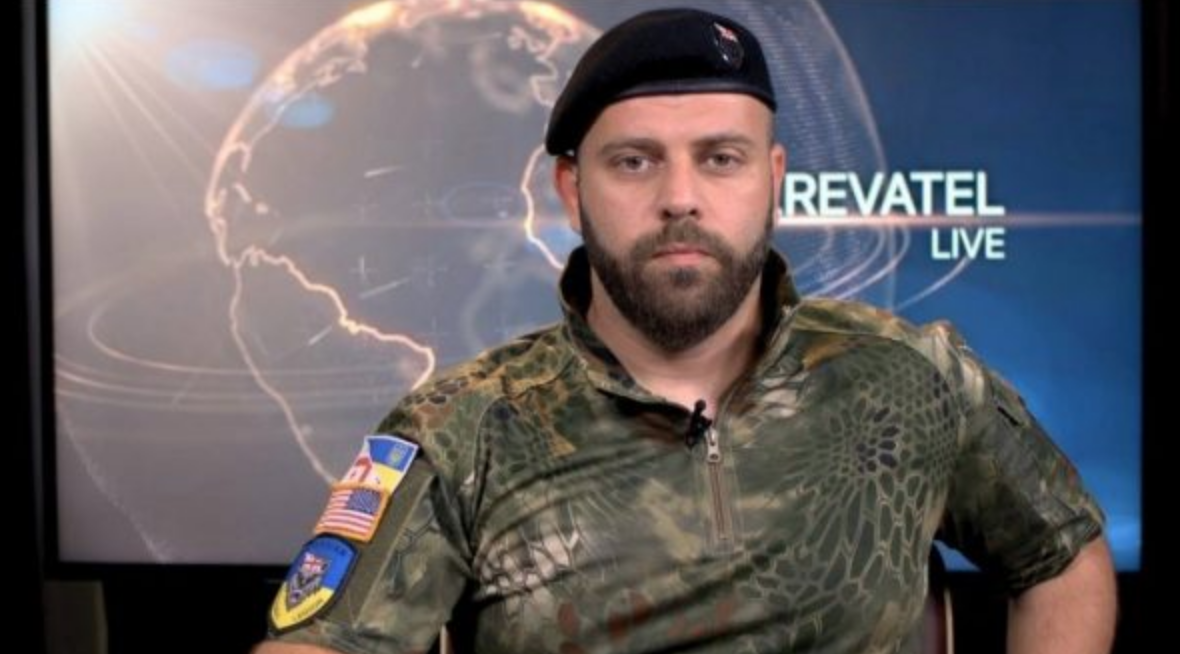
Georgian legion commander on wanted list
The Russian Interior Ministry has put the commander of the Georgian Legion fighting in Ukraine, Mamuka Mamulashvili, on a wanted list. This was reported by Russian government media with a reference to the Russian Interior Ministry.
Mamulashvili himself reacted by writing on social media, “Surprisingly, they have surpassed the (Georgian) dream.”
The Georgian Legion is a military unit fighting on the side of Ukraine and consists of Georgian volunteers and professional soldiers. The Legion was created after Russia invaded eastern Ukraine. Its commander is Colonel Mamuka Mamulashvili.
In February 2016, the Georgian Legion officially became part of the 25th Motorized Rifle Battalion of Ukraine and is now part of the Intelligence Directorate of the Ministry of Defense of Ukraine.
The Georgian Legion, in the ranks of which, in addition to Georgian volunteers, representatives of other nationalities also fight, has about two thousand soldiers
According to the Russian Interior Ministry, “Mamulashvili, who was prosecuted in absentia in Russia as part of the case of recruitment and participation of mercenaries in hostilities on the side of the Ukrainian armed forces, is wanted under a criminal article.” However, it is not specified under which article.
At this point, the Russian Interior Ministry reported that two criminal cases were opened against Mamuka Mamulashvili in Russia. He is accused of “recruitment of mercenary fighters” and “incitement of hatred towards the army.”
Mamulashvili himself has repeatedly explained that all these statements are lies and their purpose is to discredit the unit fighting on the side of Ukraine.
More than 70 members of the Georgian Legion were charged in absentia in Russia. The Russian Investigative Committee said that Georgian Legion fighters had committed crimes against Russian servicemen. According to representatives of the Investigative Committee of the Russian Federation, Mamulashvili publicly declared his intention to torture and kill Russian soldiers.
- “Members of the CANVAS organization conducted training on overthrowing the government in Georgia” – Security Service
- Ukrainian Foreign Ministry denies involvement in alleged planned coup d’état in Georgia
- “Georgian Security Service statement is written in Russian and is related to our activities” – Georgian Legion leader
On the morning of September 18, the Security Service of Georgia issued a statement saying that the country wanted to repeat the scenario of the Ukrainian Euromaidan and forcibly change the government.
The authors of the coup plan were named:
Giorgi Lortkipanidze, deputy head of Ukraine’s military intelligence, who was deputy interior minister under Saakashvili’s government;
Mikhail Baturin, a former security guard of ex-president Mikheil Saakashvili;
Mamuka Mamulashvili, commander of the Georgian Legion fighting in Ukraine. During Saakashvili’s presidency, Mamulashvili was a member of his inner circle.
The Georgian SGB claims that Canvas Georgia is being used to prepare anti-government protests in Georgia, with the Serbian organization Otpor at the center of the whole process.
Mamuka Mamulashvili, commenting on the statement of the SGB in a telephone conversation with the Formula TV company, says that it was directly dictated by Russia and is primarily related to the activities of the legion in Ukraine, so “Georgian-Russian authorities” are trying to discredit it.
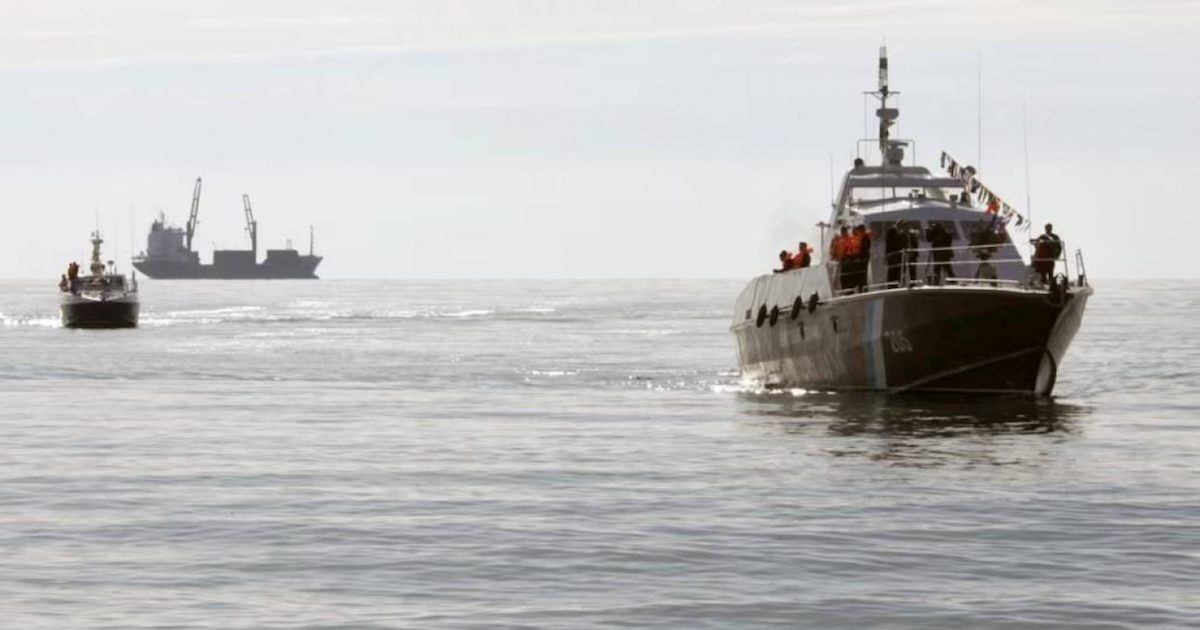
Russian base in Ochamchire
The Georgian Foreign Ministry published a statement on the interview of the leader of occupied Abkhazia, Aslan Bzhania, in which he said that in the near future a permanent base of the Russian Navy will be built in Ochamchire.
According to Aslan Bzhania, a permanent Russian naval base will be established in Ochamchire. Bzhania said in an interview with the Russian media outlet Izvestia.
“On the day of our holiday [in honor of the 30th anniversary of the Day of Victory in the Georgian-Abkhazian war of 1992-1993 and Abkhazia’s independence day, which was celebrated on September 30] a small missile ship came to us, we went aboard – a very modern vessel with serious combat capabilities. We signed an agreement, and in the near future there will be a permanent stationing point for the Russian Navy in the Ochamchire district.
All this is aimed at increasing the level of defense capability of both Russia and Abkhazia, and serves the interests of Russia and Abkhazia, and security in this regard is the most important factor.”
Secretary of the Security Council of the Republic of Abkhazia Sergei Shamba reacted to the statement of Aslan Bzhania and noted that this agreement “was not reached today” and the decision was made at previous joint meetings.
According to Shamba, for Abkhazia this is an example of realization of union agreements with the Russian Federation.
The Georgian Foreign Ministry expressed “concern” about this and noted that such actions are a violation of Georgia’s sovereignty and territorial integrity.
“The international community strongly supports Georgia’s sovereignty and territorial integrity.
We call on the Russian Federation to abide by its international obligations, implement the ceasefire agreement brokered by the European Union on August 12, 2008, and end the illegal occupation of Georgia’s indivisible regions.”
- “Why Abkhazia does not face the fate of Nagorno-Karabakh?” Opinion
- Putin meets with President of Abkhazia, Aslan Bzhania
Feedback
Former Prime Minister Giorgi Gakharia: “Russia’s decision to establish a permanent naval base in occupied Abkhazia shows the complete failure of Ivanishvili’s policy of intimidation of the Kremlin.
Georgia’s ruling party refuses to react or even notice Russia’s ongoing meetings with the occupation regime in Abkhazia, culminating in the announcement of a new Russian military base.
Instead, Georgian Dream is preoccupied with the infamous process of impeaching the president and further restricting freedom of speech. The aim of all this is to destroy independent democratic institutions, intimidate civil society and sabotage EU integration, which is significantly harming national security.”
Mayor of Tbilisi, Kakha Kaladze: “I am not aware of this statement; however, if it is true, it is extremely alarming and serious. You know that most of the territory of our country is occupied by Russia. The main thing is that the international community, the modern world supports the territorial integrity of our country.”
Chairman of the European Georgia Party, Giga Bokeria: “The occupation regime, that is the same Russia, praises our current government. We should all ask ourselves a question – why should the enemy praise the government if it does not agree with what this government is doing?
The government wants to leave us in international isolation from the West, and we learn that a new military base is being opened in occupied territory. We must draw conclusions, this traitorous lie, as if we will survive, we must all reject and replace this regime with a democratic one. Only by integrating into NATO and increasing defense capabilities at home can we defend ourselves from the Russian threat and restore our territorial integrity.”
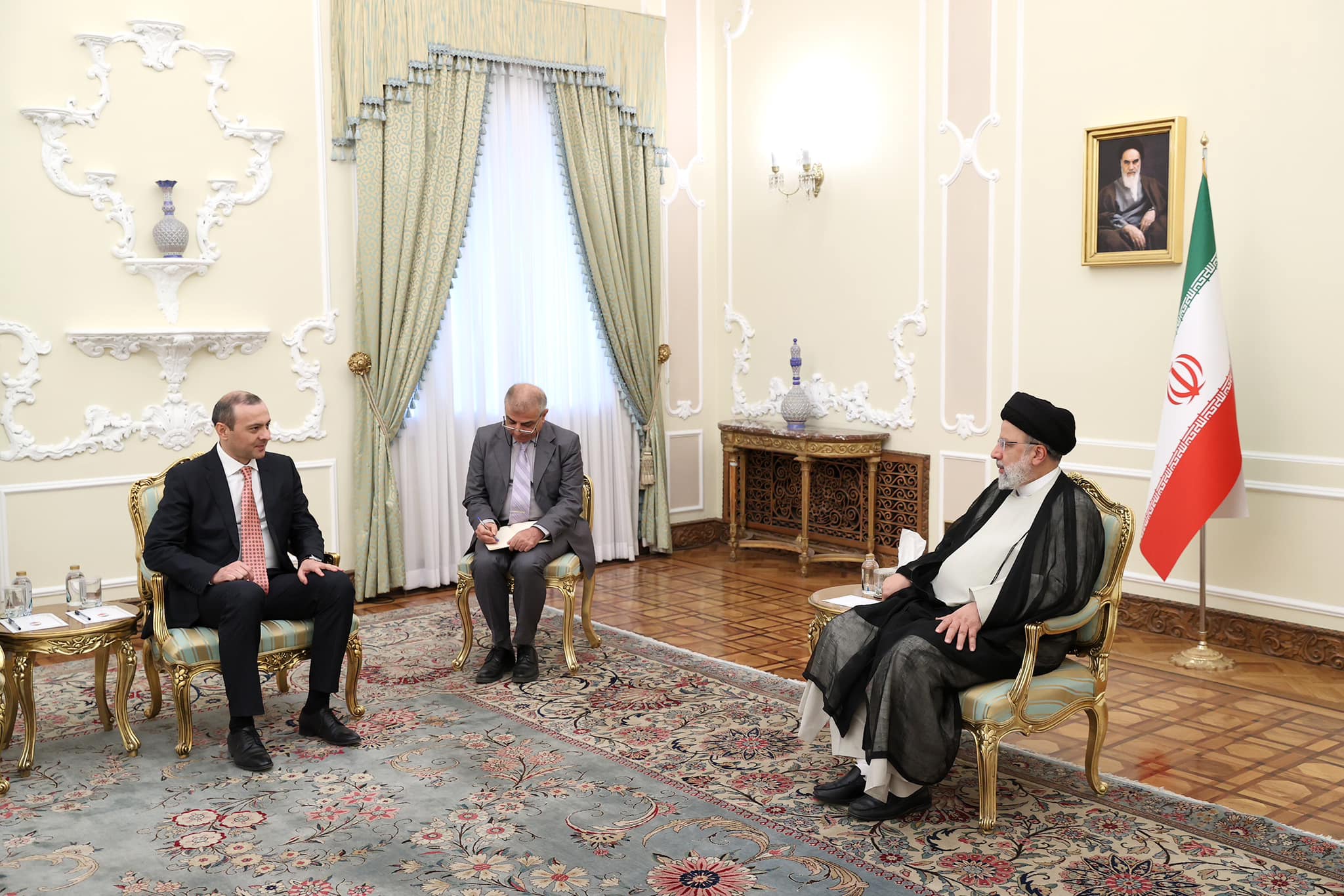
Iran’s position on the “Zangezur Corridor”
After the hostilities in Nagorno-Karabakh and the mass exodus of Karabakh Armenians from their homeland, Azerbaijan and Turkey have once again started talking about the “Zangezur corridor”. The road through the south of Armenia, which will connect Azerbaijan with Nakhichevan, was so named by Ilham Aliyev. “I introduced the term “Zangezur corridor” into the geopolitical lexicon,” he once admitted. Armenian authorities have repeatedly stated that they are ready to unblock communications, categorically rejecting the term “corridor”. The explanation is that it means the loss of the country’s sovereign control over its territory.
The latest statements say that “Azerbaijan has no claim to these territories and recognizes them as Armenia’s sovereign territory”. At the same time, they demand “reliable guarantees” of uninterrupted traffic along this route. According to the Azerbaijani side, Russia should provide them.
Armenian experts are convinced that these statements do not mean that Baku and Ankara have given up their intention to get the corridor and will not resort to force to achieve this goal. Yerevan is actively discussing the possible reaction of international partners, particularly Iran, to such a scenario.
The Armenian-Iranian contacts that have intensified in recent days have also become an occasion for this. The Secretary of the Armenian Security Council met with the leadership of the country in Tehran. It is noteworthy that during the same period special representative of the Azerbaijani President Khalaf Khalafov was here.
According to Iranian news agency Irna, President Ibrahim Raisi during his meetings with both Grigoryan and Khalafov said: “The Zangezour corridor is a platform for NATO’s presence in the region and a threat to the countries’ national security, which the Islamic Republic categorically opposes.”
Meetings of the Secretary of the Armenian Security Council in Tehran
Iranian President Ibrahim Raisi received Armen Grigoryan and discussed bilateral relations and regional security issues.
“The sides emphasized that the principle of inviolability of borders should be respected and conflicts should be resolved through dialogue,” reports from Tehran said.
Grigoryan also met in Tehran with the foreign minister, the secretary of the Supreme National Security Council, and the chief of the Supreme Staff of the Iranian Armed Forces.
The official reports said that issues related to security and “respect for the territorial integrity of the countries of the region” were touched upon.
“Any geopolitical changes in the South Caucasus are unacceptable”
The Iranian President again declared the unacceptability of geopolitical changes in the region. This time he first reiterated Tehran’s position to Grigoryan, then to Khalafov.
According to Iranian media reports, Raisi emphasized that Iran is ready to support Armenia and Azerbaijan in settling relations through dialogue. He emphasized that any geopolitical changes in the Caucasus will harm the interests of the countries in the region. He also expressed confidence that they are capable of solving the existing problems for the sake of “preserving and strengthening stability in the Caucasus.”
At a briefing with journalists, Iranian Foreign Ministry spokesman Nasser Kanaani noted that possible developments in the Caucasus region were discussed with the Armenian Security Council Secretary.
“Iran is in favor of the development of transport communications, which will be beneficial for all countries in the region, but is against changing international and geopolitical borders,” he said, answering a question about the so-called “Zangezur corridor.”
“Iran is ready to send observers to the Armenian-Azerbaijani border”
The Chief of Staff of Iranian Armed Forces, Major General Mohammad Hossein Bagheri, stated readiness to send observers to the border between Armenia and Azerbaijan at a meeting with Armen Grigoryan. As mehrnews reports, he stated:
“Improving the defense capabilities of any country should not imply any aggressive goals or intentions. Peace and tranquility in the region is in the interest of all countries. Security in the region should be provided by the countries of the region and the presence of extra-regional forces is contrary to peace in the region.”
Bagheri called for measures to settle the disputes and added that Iran is ready to contribute to reducing tensions in the region.
Comments
Iranianist Zhanna Vardanyan says the recent developments in Nagorno-Karabakh have caused concern in Iran:
“Media and expert circles in Iran say it is not excluded that after these events Azerbaijan and Turkey will target [Armenia’s southern province of] Syunik, especially as talk of the so-called ‘Zangezur corridor’ has intensified in Ankara and Baku in recent days.”
She recalls that in recent years Iran has repeatedly stated that it is in favor of unblocking transportation, but will not allow the change of borders.
According to the Iran expert, official Tehran has already announced to Turkish envoys and high-ranking officials that changing Armenia’s borders is a red line for Iran.
“It is not by chance that in the negotiations, the Iranian side offers to open a land route between Azerbaijan and Turkey through its territory. This is, in fact, proposed as an alternative to the so-called Zangezur corridor.”
Regarding its red lines, Iran “does not limit itself to diplomatic statements”, says Zhanna Vardanyan. In confirmation, she recalls that in recent years Iran has regularly conducted military exercises along the state border with Armenia and Azerbaijan, which are “a kind of warning signal” for Azerbaijan, Turkey and their allies. And now large-scale exercises are being planned again.
“At the moment it is difficult to predict what specific actions Iran will take in the future, but it is a fact that Tehran attaches significant importance to the security component and the factor of territorial integrity and inviolability of borders.”
Journalist, political analyst Tatul Hakobyan believes that against the background of events in NK, the topic of “Zangezur corridor” has temporarily receded into the background.
However, this does not mean that “the threat and territorial harassment of Baku-Moscow-Ankara against the sovereign territory of Armenia” have been eliminated.
Tatul Hakobyan suggests that the Armenian authorities “give new content to relations with those states whose interests are not served by the existence of the corridor along the Arax River”. First of all, he means Iran.
Commenting on Tehran’s statement on sending observers to the Armenian-Azerbaijani border, he emphasizes that this is the first time Iran has publicly announced such an intention:
“Meanwhile, in the course of negotiations and private discussions, Iran expresses its desire to deploy armed forces in Syunik to protect the Armenian-Iranian border from the encroachments of the Russia-Turkey-Azerbaijan tandem.”
Claims that the Iranian president made such a proposal to the Armenian leadership in New York a year ago. Yerevan is not inclined to allow an Iranian military presence in Syunik, given some factors, but it should not be ruled out:
“In unofficial, closed discussions, Iran simply states that if Azerbaijan invades Armenian territory to seize the corridor, the Iranian armed forces, without asking anyone or waiting for anyone’s permission, will cross the Araxes and start hostilities against the invading troops in order to protect Iran’s vital interests.”
According to the analyst, besides Iran, the EU and the US are also interested in preserving Armenia’s territorial integrity and sovereignty. But he emphasizes that the issue should be solved by the Armenian army and diplomacy.
Follow us – Twitter | Facebook | Instagram
Iran’s position on the “Zangezur Corridor”
Outcome of the quadripartite meeting in Granada
“The statement adopted at the end of the quadripartite meeting held in Granada annulled the November 9, 2020 trilateral document signed by the leaders of Armenia, Azerbaijan and Russia at the end of hostilities in Karabakh,” political analyst Gurgen Simonyan believes.

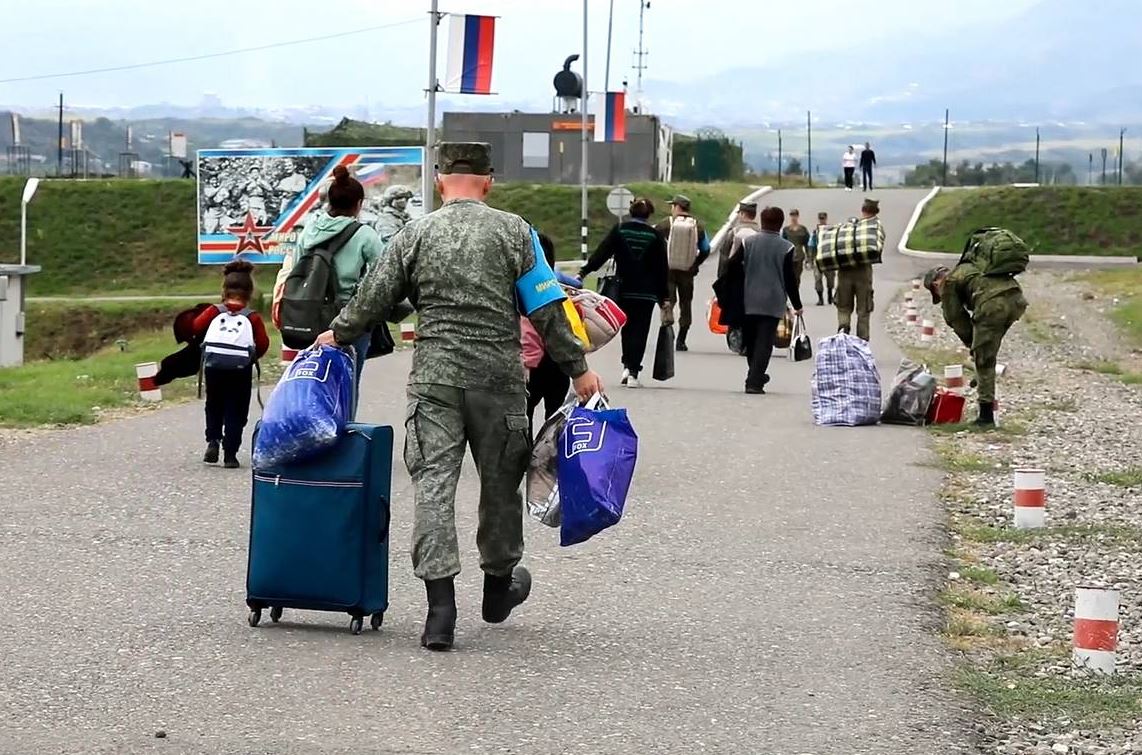
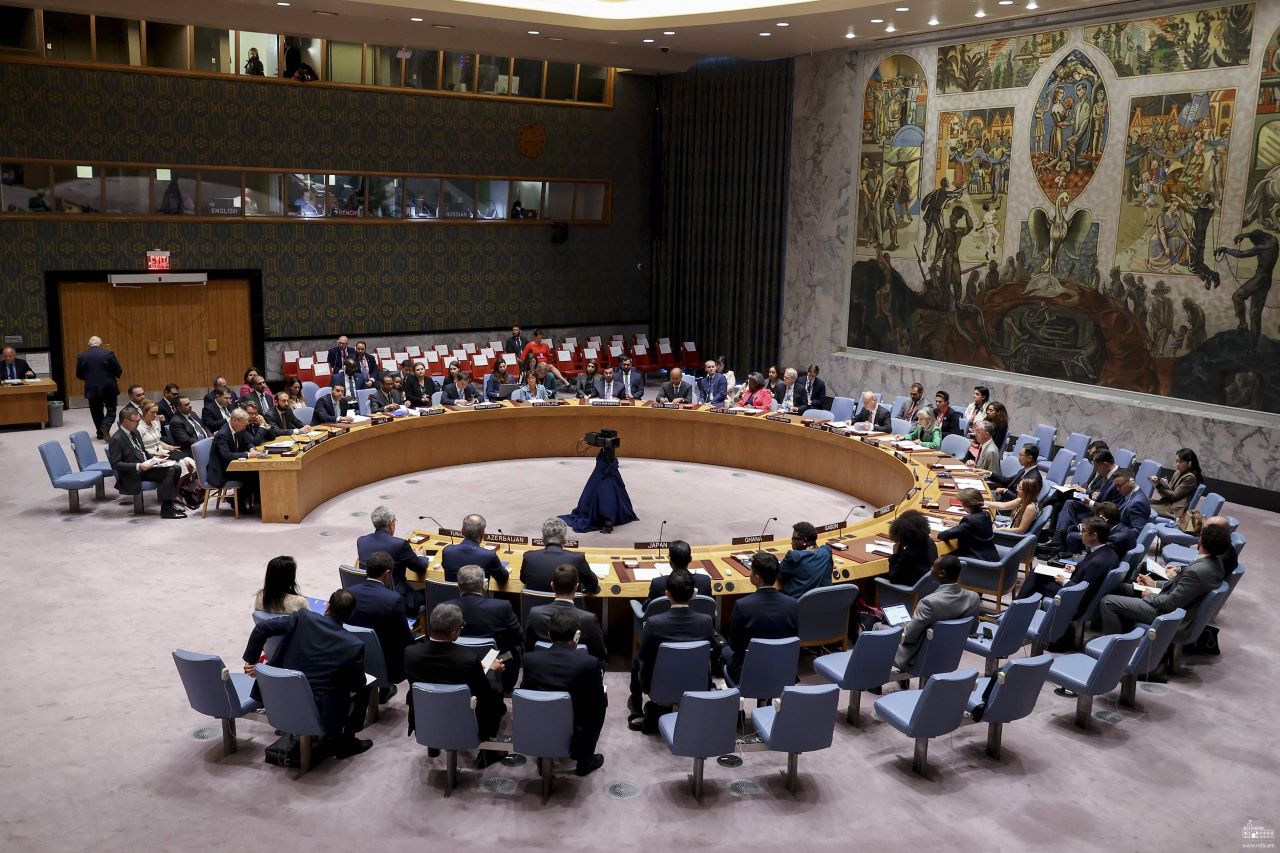
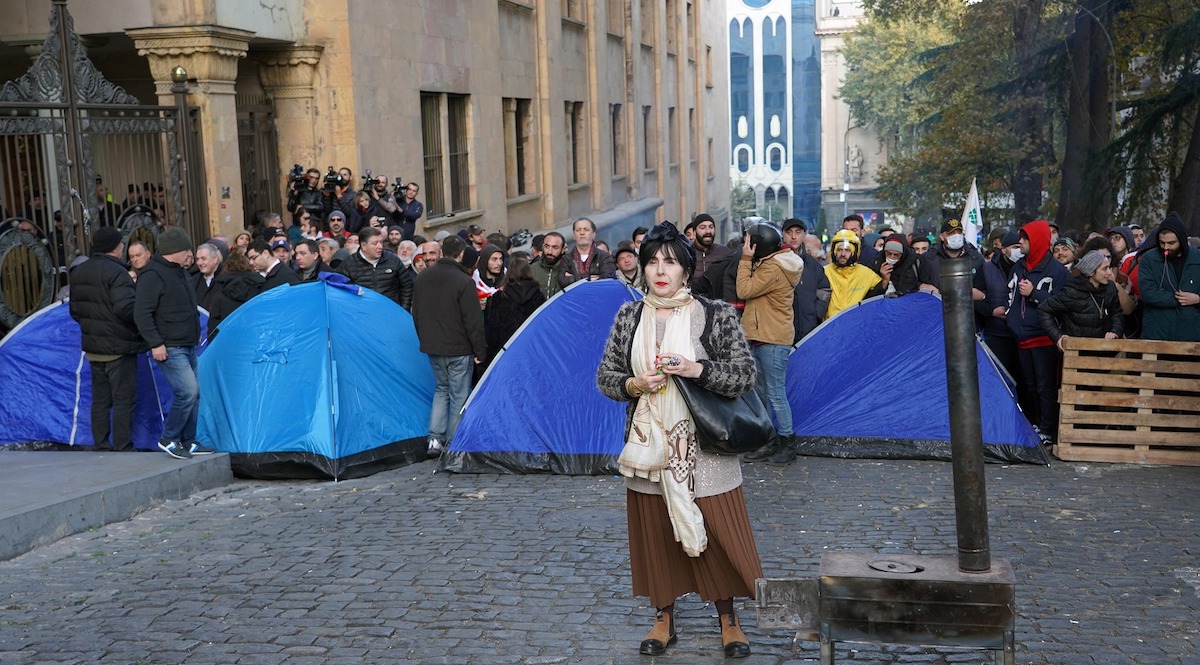
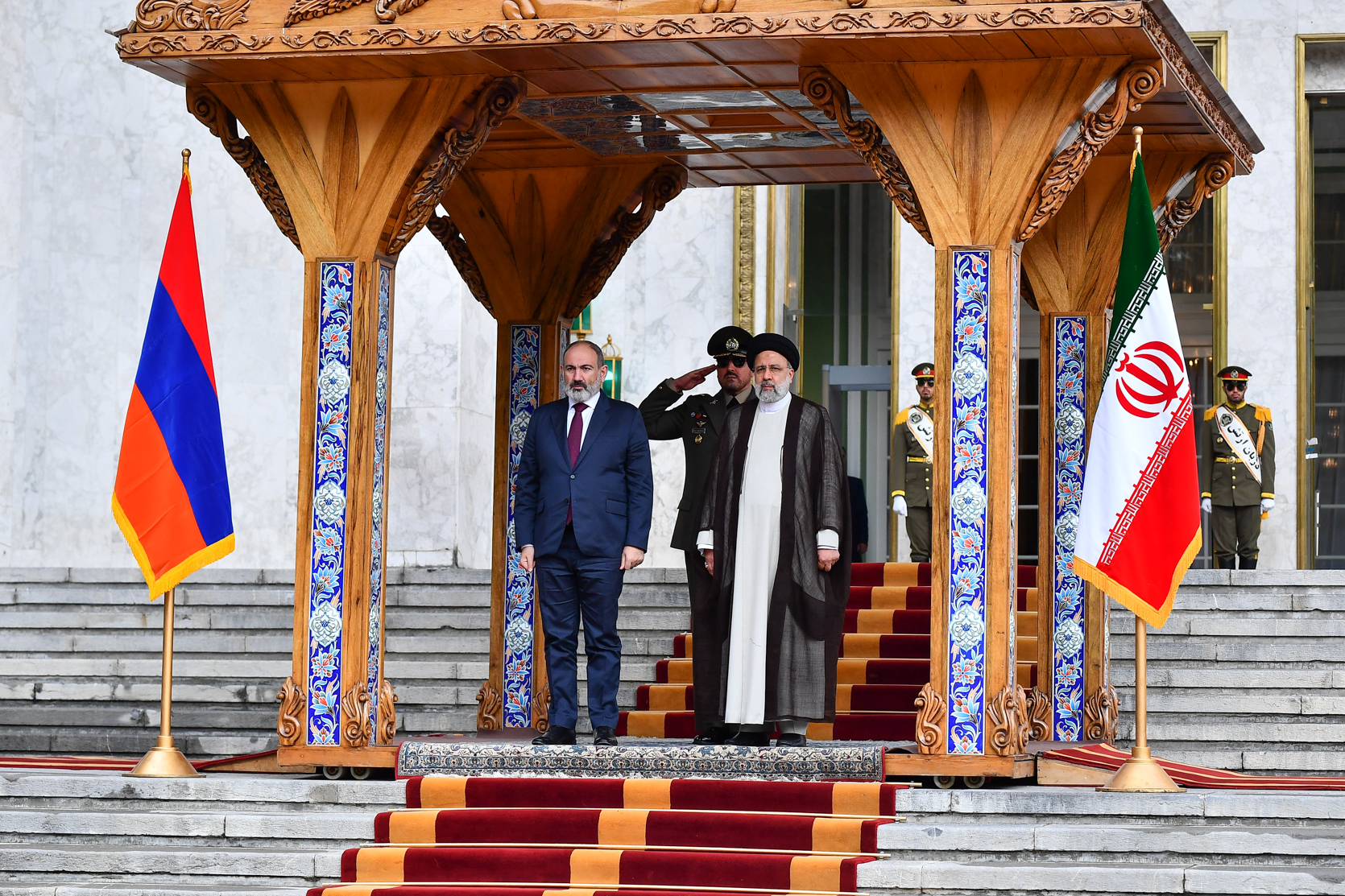
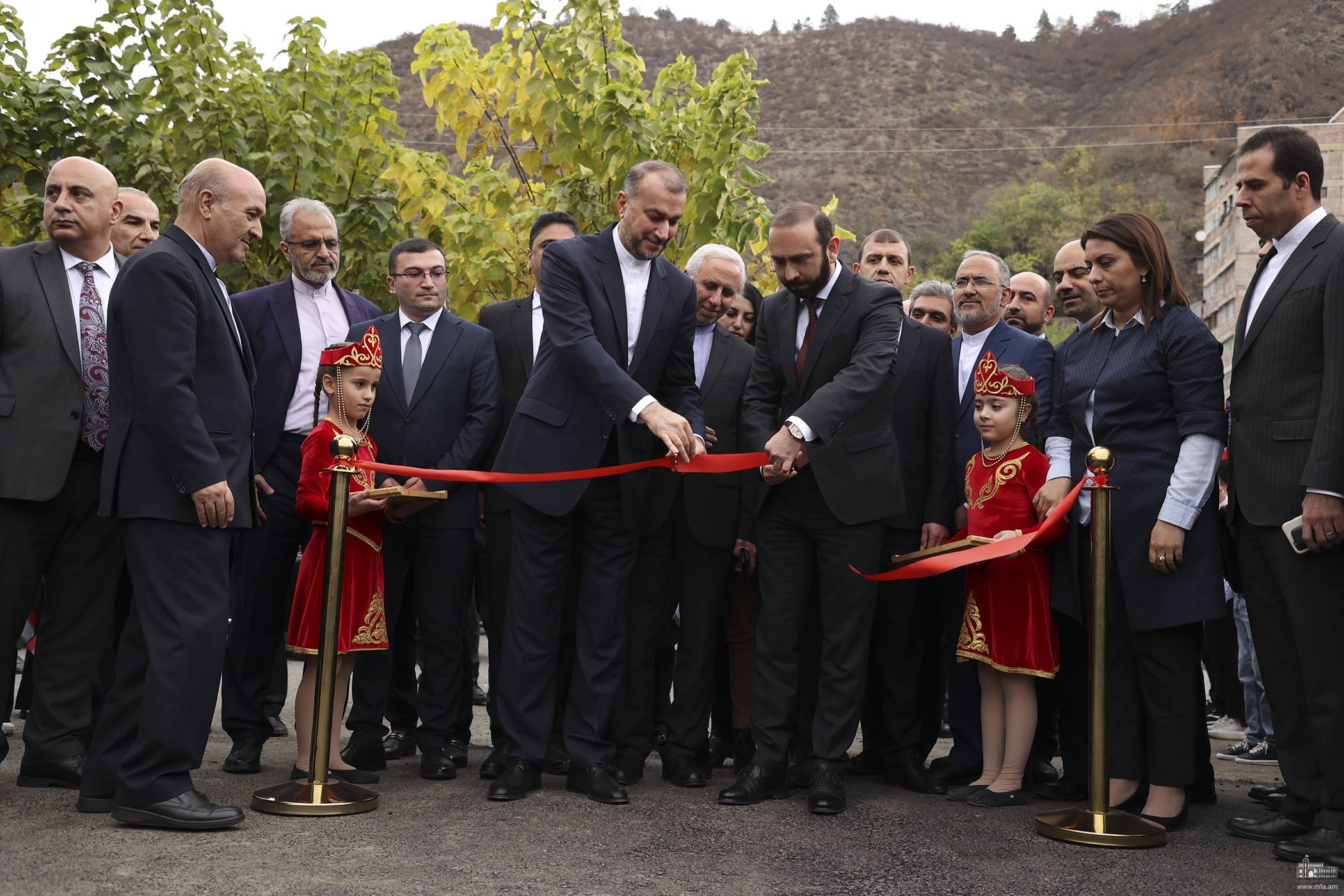
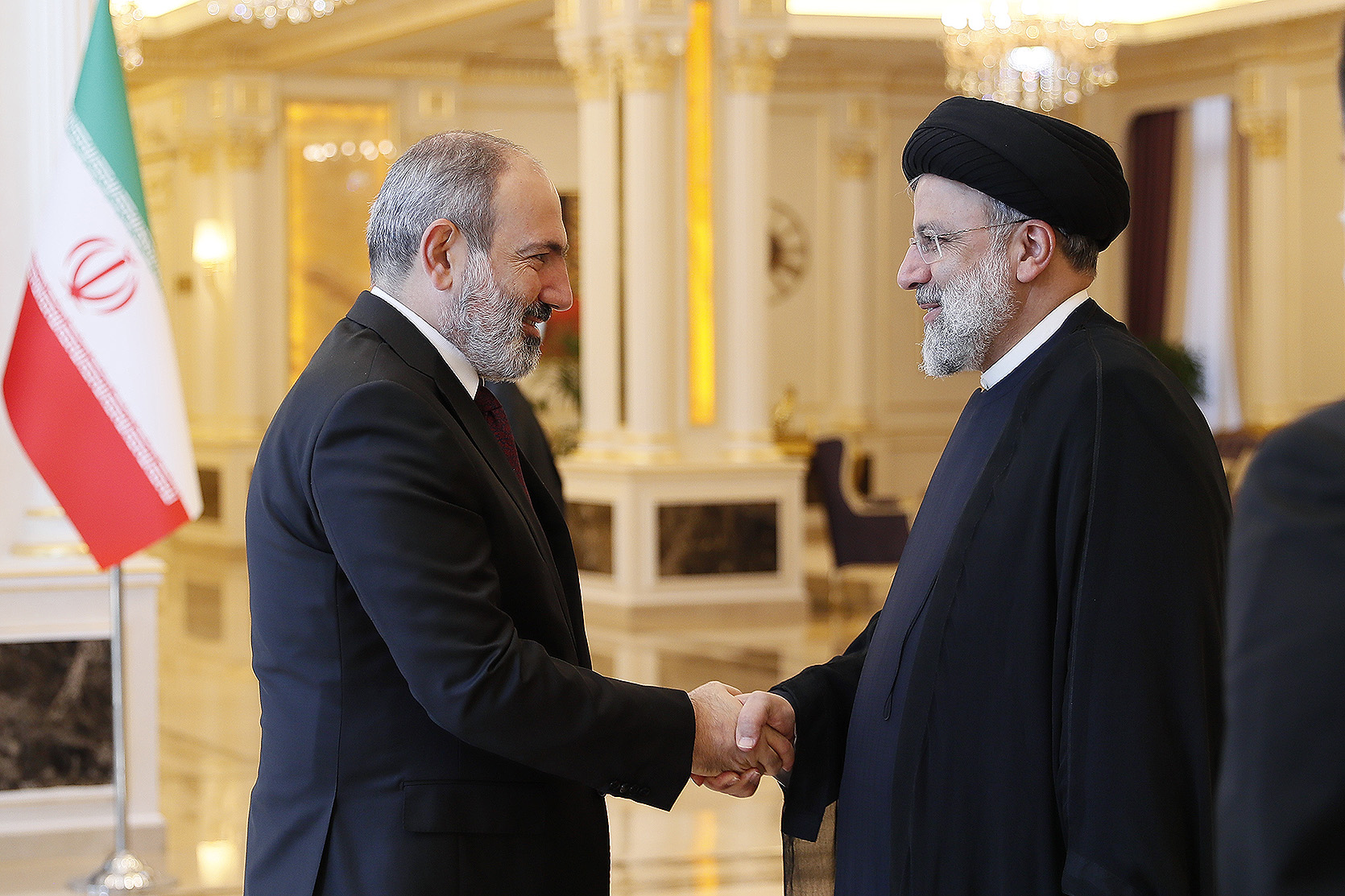
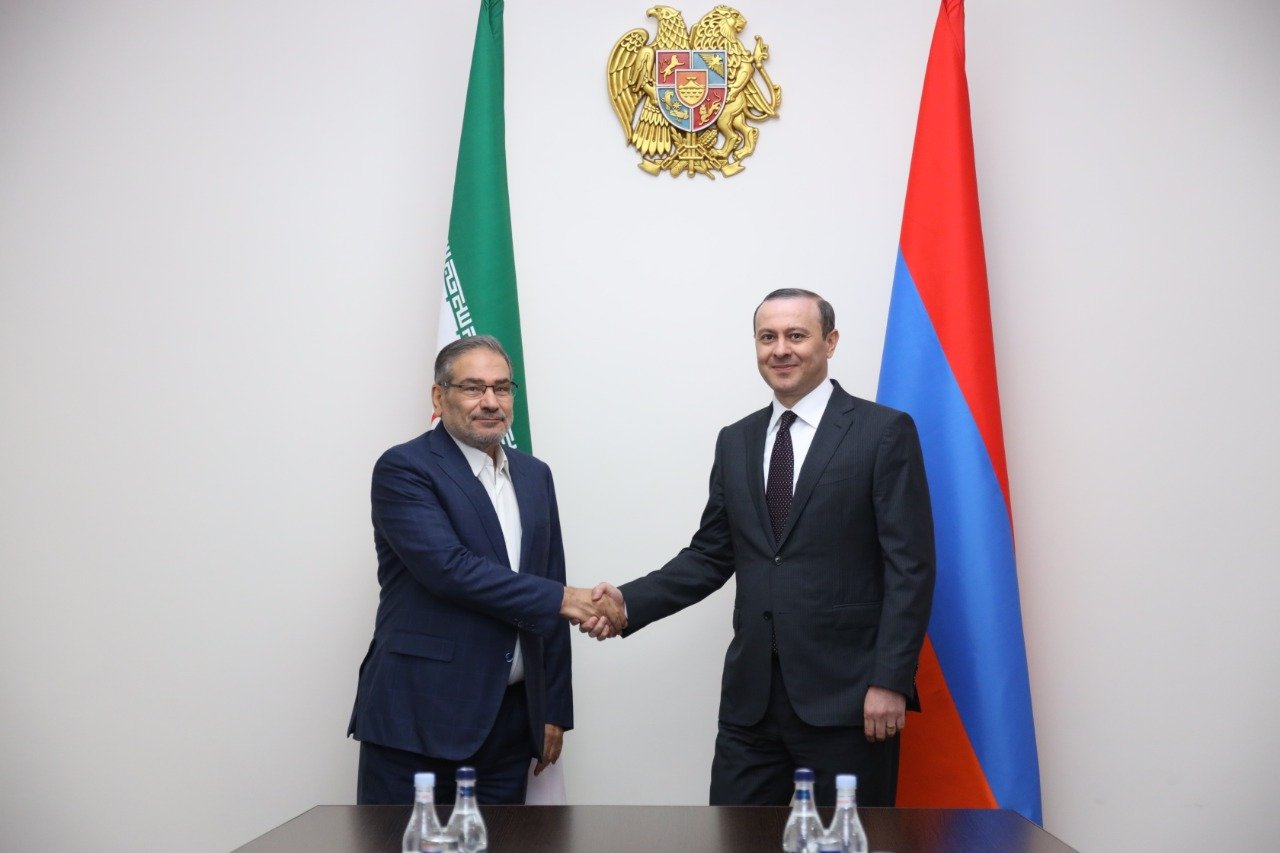



Comments
Post a Comment